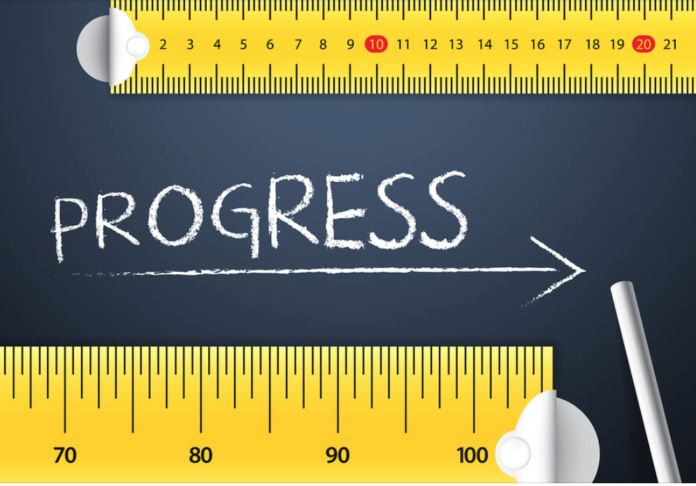“The test of our progress is not whether we add more to the abundance of those who have much it is whether we provide enough for those who have little” President Franklin D. Roosevelt once said.
It is also a measure of our progress that we face to the mistakes of the past and try to put them right.
Last Wednesday the royal commission which has been looking into historic abuse in state and church run care facilities between 1950 and 1999 released its interim report.
It has found that of the 655,000 people who passed through the doors of orphanages, homes for people with disabilities and mental health institutions up to 250,000 were abused.
Physical and sexual abuse was the most common type of abuse reported to the commission, but abuse also included the use of medication and medical acts [electro-convulsive therapy] as punishment, unjustified solitary confinement and isolation, improper strip searches and vaginal examinations, verbal abuse, racial slurs and “cruel, inhumane and degrading treatment”, as well as widespread neglect.
One of their most sobering findings is that 81% (202,500) of children abused in care were Māori.
The measure of REAL progress lies not only in the laying out of what has been done in the past but in what we do once we know a wrong has been done.
Yes the issue of impoverishment , institutional racism and the social consequences of it are complex , but there is nothing that we have created in our society that cannot be undone.
What is required is simple – the political will to have a more equal and caring society.
Once that is firmly in place we can, together, figure out how to achieve it.
Bryan Bruce is one of NZs most respected documentary makers and public intellectuals who has tirelessly exposed NZs neoliberal economic settings as the main cause for social issues.






‘but there is nothing that we have created in our society that cannot be undone.’
I wish that were true, Bryan. But t’s not.
The damage done to individuals by the state persists for their entire lives, and often impacts on the next generation.
It is certainly a good thing that the abuse of children supposedly in the care of the state has been finally acknowledged. But as for undoing the damage. No. Indeed, the state is currently orchestrating similar levels of damage -arguably greater levels of damage than ever witnessed previously- by its persistence with Neoliberal policies which enrich the wealthy and keep the poor poor. okay, there are not the direct physical and sexual assaults on children by the state: it is much more subtle and consists of denial of healthy living conditions and the failure to provide healthy food etc.
The historical damage done to the environment by the state has been undone in a few select locations. But on the whole, the damage done by the state to the environment INCREASES by the day, by the minute even; ever more farmland gets covered with dysfunctional suburbia; ever more people are crammed into smaller and smaller living spaces and forced to breathe increasingly polluted air -with disastrous long term consequences.
Obviously, most pertinent of all is the pursuance of policies of ostentatious consumption by government which are leading to planetary meltdown. The suffering and mortality associated with planetary meltdown in the near future will make everything else we have witnessed pale into insignificance. But even at current levels of climate disruption we are witnessing unprecedented suffering -particularly in the more vulnerable locations around the world.
Do you think ANY politician is at all interested in protecting the future of children of NZ when there are rorts to be worked and Ponzi schemes to be upheld? I certainly don’t know of any. Everything I see, read and hear indicates to me that our so-called leaders are complete charlatans, focused entirely on short-term goals of looking good in the public eye, getting re-elected, and acquiring personal wealth.
If anyone has any evidence that is not so I’d like to hear about it.
As for progress, well progress is a myth. What people call progress is just change. And most of what people regard as progress is change for the worse. Is it really progress to become increasingly dependent on fossil fuels that cause so much damage from the point of extraction to the point of use? Especially at the point of time when they are becoming so much more difficult to extract and the consequences of using then are ever more apparent!
Is it really progress to disconnected children from the natural world and give them expectations of life that the Earth cannot possibly provide? I would call that abuse. I would call it institutionalised abuse of the highest order.
Growth and progress, growth and progress
start the metronome of excess
money makers wanting access
to the hallowed halls of success
learn the doctrine knowing its baseless:
Growth is good, forgetting cancers
and those pesky toxic bloomings
not to mention climate changes. . .
Progress always lunges forward
to those bigger brighter futures
never mind the risky corners
in the dark towards the cliff edge
/full stop /?
Apologies.
Is it really progress to DISCONNECT children from the natural world and give them expectations of life that the Earth cannot possibly provide [in the future]? I would call that abuse. I would call it institutionalised abuse of the highest order.
Question for Bryan Bruce.
You write that 81% of children abused in care were Māori. What percentage of children in care were Māori?
Nah mate. No minister in there right mind coupd go out out on the world stage preaching good old Christian values while there are unresolved issue in our own homes.
It taken non Maori the better part of 200 years to come to terms with its civilising of the indigenous issues and now there is a tremendous opportunity to get that relationship correct.
The report said it must be read and digested in the light of continuing cases of abuse in care today, including the fact that Māori children continue to be over-represented in the state care system, making up 69% of children in state care, and 81% of children abused in care, despite representing only 16% of New Zealand’s population of five million.
So no matter what race you are you will probably be equally abused in state care.
So when will some people be charged. There is no doubt that some of the people who wrecked kids lives are still alive and should be charged.
It is all appalling, and no many people never get over it.
“What is required is simple – the political will to have a more equal and caring society.”
Do you mean the will of the politicians , or the political will of society? Because the will of society to care properly for children who’s parents have failed them for whatever reason is unequivocal and pretty nearly universal. There isn’t any question we want them to be looked after properly. We can look after a few extras ourselves when they pop up in our face , but the state has a role in the end.
The problem is that the institutions set up to look after kids that don’t get fostered of adopted attract the predators to a situation that provides the opportunity to act out their perversions. And get paid for it.
There is always a proportion of predators in any society. Look at the flourishing industry i child and sex trafficking . There is a market out there for exploiting disadvantaged and vulnerable children . But it isn’t society as a whole, and there’s no will in society as a whole to support it.
The problem is how to keep such people out of those jobs. They don’t go around with a label on their forehead. They will present with impeccable credentials , and they won’t aspire to the top administrative job in the institution as that will be administrative and take them out of the environment they are there to exploit. So they won’t be among the administrators who are getting the heat for this revelation.
Institutions are the problem. What i suggest is that ordinary decent people put their hand up when such a need for care arises within their sphere of influence and connection. The result will almost certainly be rewarding for life and far greater than the cost in short term convenience and independence. Society needs to take this problem on in a hands on practical manner.
D J S
Social and economic policies of the state often include heavy doses of explicit and implicit bias.
https://www.youtube.com/watch?v=b5UUBPA1-FU
Comments are closed.